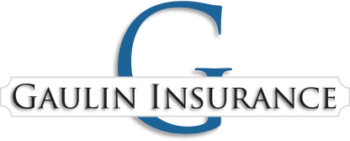
How Do Increased Claims Impact Insurance Rates?
Insurance is a financial safety net that individuals and businesses rely on to protect themselves against unexpected losses. Whether it’s auto, home, health or any other type of insurance, premiums are based on various factors, one of the most significant being the frequency and severity of claims. When claims increase, insurance companies often respond by raising premiums to maintain profitability and financial stability.
What Factors Influence Increased Insurance Claims?
The following factors can contribute to a rise in insurance claims:
- Economic conditions—As the cost of living increases due to inflation, insurers may adjust their premiums to account for rising expenses. This is particularly evident in property insurance, where the cost of rebuilding or repairing damaged homes and buildings has increased over time.
- Weather events—Natural disasters such as hurricanes, floods and wildfires can result in a surge of insurance claims for property damage. With climate change leading to more frequent and severe weather events, insurers face greater exposure to risk.
- Technological advancements—While technology has brought numerous benefits, it has also introduced new risks. For instance, the proliferation of smartphones has led to a rise in distracted driving accidents, impacting auto insurance rates.
- Societal trends—Changing demographics and social behaviors can influence the types of claims insurers receive. For instance, an aging population may lead to more claims related to health care and long-term care.
How Do Claims Impact Insurance Rates?
When insurance claims increase, insurers must adjust their pricing to maintain profitability, or they may not have the funds to pay for the claims they underwrite. The following are ways increased claims can impact insurance rates:
- Loss ratios—The loss ratio is a performance metric that measures the ratio of claims payouts to premiums collected. If claims increase, the loss ratio generally rises, indicating reduced profitability. To offset this, insurers may raise premiums.
- Reinsurance costs—Insurers often purchase reinsurance to protect themselves against catastrophic losses. When claims escalate, reinsurers may raise their rates, prompting primary insurers to pass on these costs to policyholders through higher premiums.
- Regulatory requirements—Insurance regulators may require companies to maintain certain levels of financial reserves to ensure they can meet their obligations to policyholders. If claims surge, insurers may need to increase reserves, leading to higher premiums to replenish those reserves.
Insurance in Cranston , RI
Increased claims can significantly impact insurance rates, affecting both insurers and policyholders. While insurers must adjust premiums to manage risk exposure and maintain financial stability, policyholders may need to explore options to mitigate the impact on their budgets. Contact Gaulin Insurance Agency to navigate the complex landscape of insurance.
This blog is intended for informational and educational use only. It is not exhaustive and should not be construed as legal advice. Please contact your insurance professional for further information.
Categories: Blog
